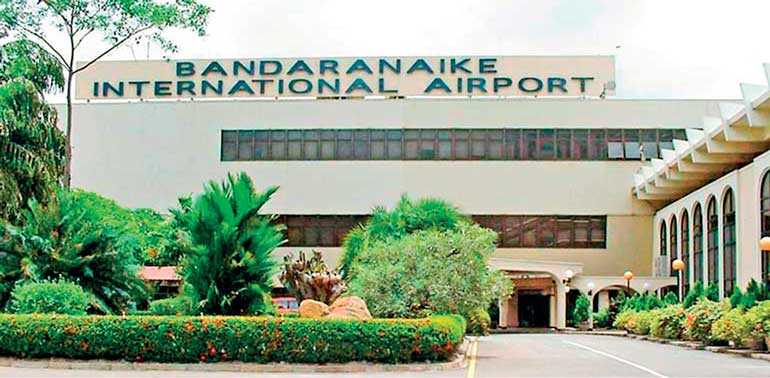Sunday Feb 22, 2026
Sunday Feb 22, 2026
Thursday, 14 March 2019 00:56 - - {{hitsCtrl.values.hits}}

Sri Lanka’s current need is to better grasp the intricacies of the investment climate. Its stakeholders, whether domestic or foreign, have standards which define their confidence to invest, with all other factors being equal.
The basic comprises time. The reason why mega-investors around the globe use their own aircraft is to suit their timelines. Consequently, if Sri Lanka as a nation is to leapfrog in its economic and tourism development, the basics of time have to be an integral part of policy-making.

With the current road transport with traffic congestion, the long distance intercity trains specially the reserved compartments to the major cities being fully booked up in advance for days and sometimes months, does not facilitate to promote tourism or even locals to travel to different parts of Sri Lanka. It further aggravates the situation due to the infrequency of the trains to meet the demands of the public, causing overcrowding in the trains.
Consequently, due to these drawbacks, the promotion of tourism and mega projects in different provinces in Sri Lanka has now become a major deterrent. This factor also prevents rapid economic development across the country.
In most capitals of developed countries, an airstrip is available for the convenience of intercity air travel. Also, for foreign tourists, immediate connections are provided to reach different destinations within the country immediately after disembarkation.
In Sri Lanka, it should be from a domestic airport linked to the main Colombo Airport. This is lacking in Sri Lanka. Consequently, the north and east in particular do not attract tourist traffic. Therefore, the mindset of policymakers must visualise the way forward with air travel to trigger a wave of rapid change by coupling the engagement of investment with air transport using the existing network of domestic airports at Palaly, China Bay, Koggala, Weerawila, Sigiriya, Anuradhapura, Amparai, Mattala and Ratmalana as the infrastructure is already in place. However, at the outset, the urgency is to connect the north and east in particular and Sigiriya or Anuradhapura from Colombo (Ratmalana).
In India, internal air travel is very common and it is so convenient to reach places. Of course, India is a big country. Even in other Asian countries, like Vietnam and even in Myanmar, the intercity air travel is promoting tourism and economic development. Planes carry around 60 passengers plus a small crew and the turnover time for planes from landing to take off is between 15 to 20 minutes in Myanmar. The busy period is between the early morning hours and again during the evening hours. The operational networking has to be worked out by experts and if implemented as soon as possible will no doubt, accelerate the economic development in the regions of Sri Lanka.
The outlying areas of northern and eastern Sri Lanka which have now been provided an ‘Economic Development Framework’ can only limp slowly, unless integrated with air travel. Its demand can grow when timelines are considered as an integral part of development decision-making.
A fallout from same will be the accompanying flow of other stakeholders including tourists, commercial and domestic travellers. The general pricing of the fares should be studied carefully to promote intercity air travel, by not over pricing as in other Asian countries referred to above.